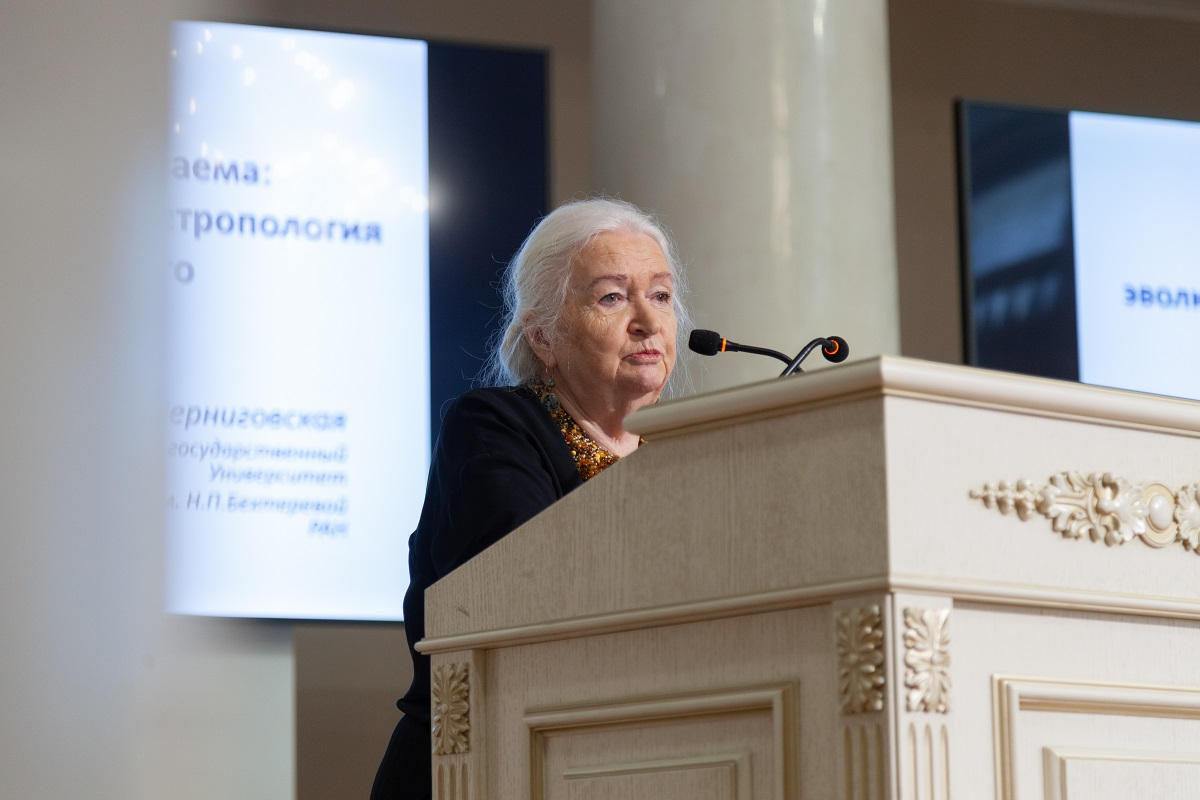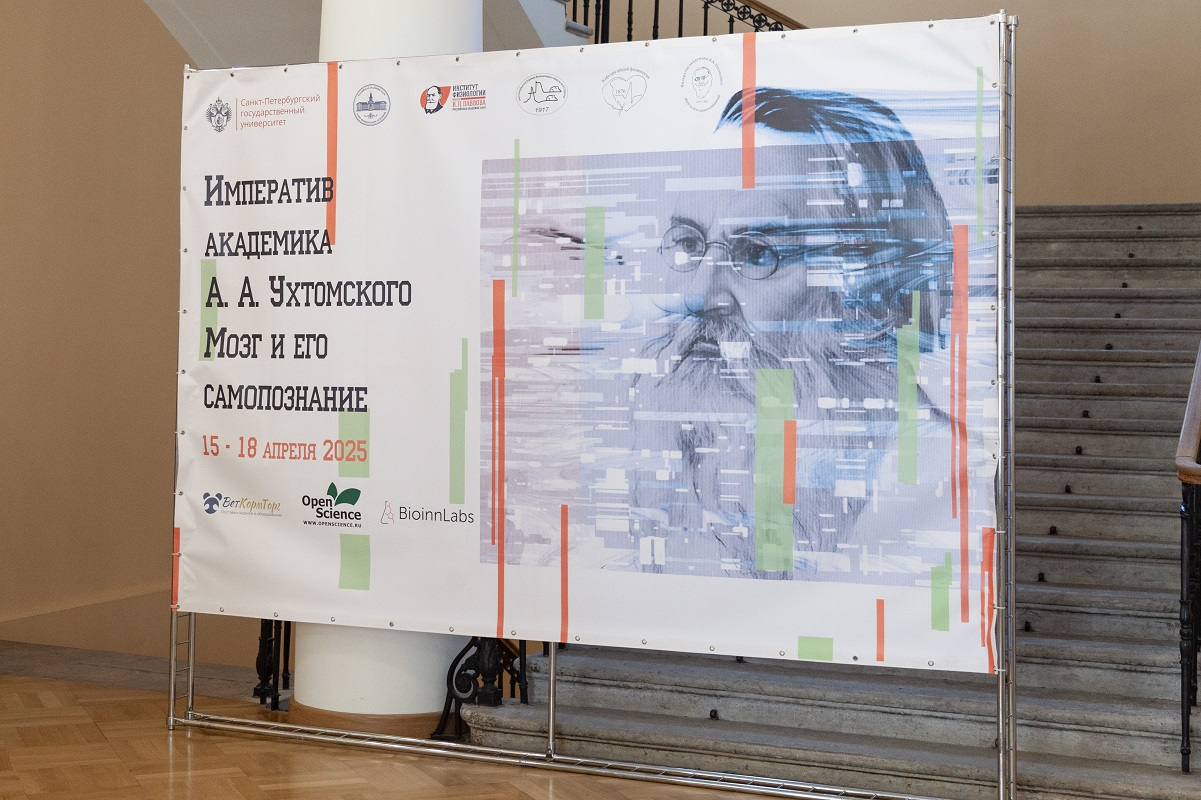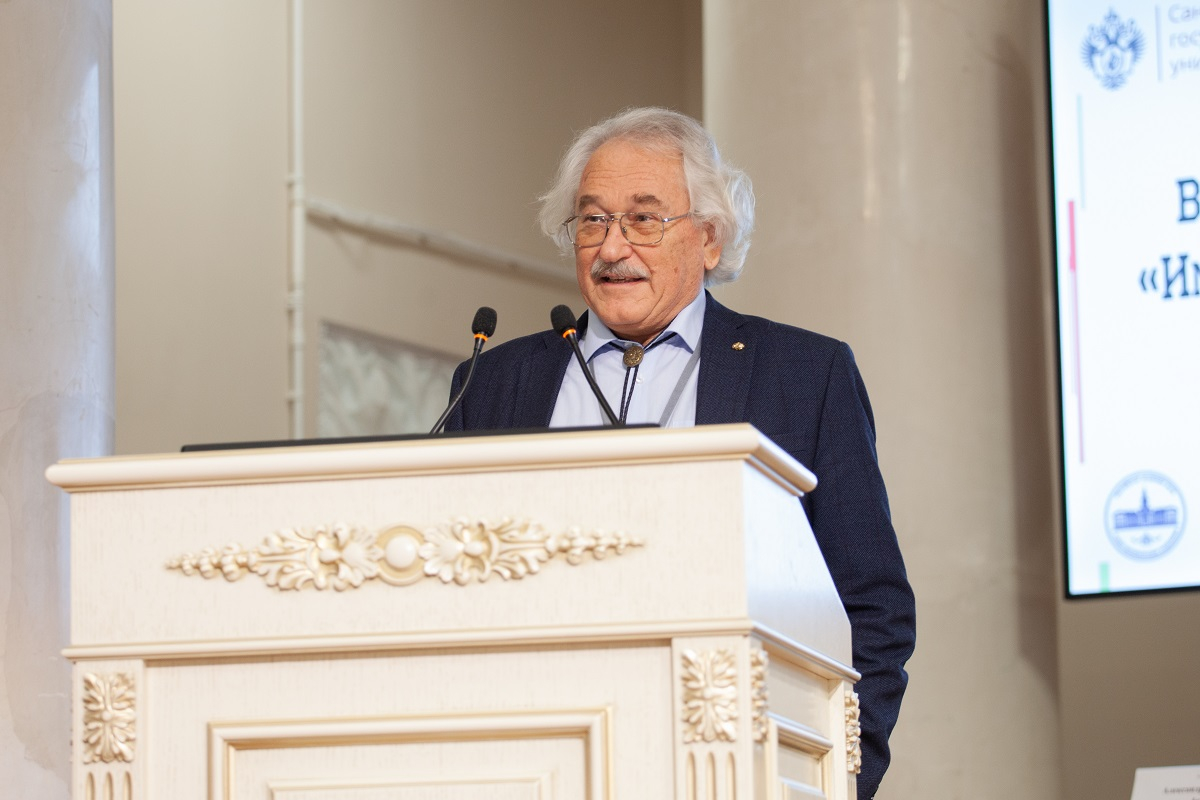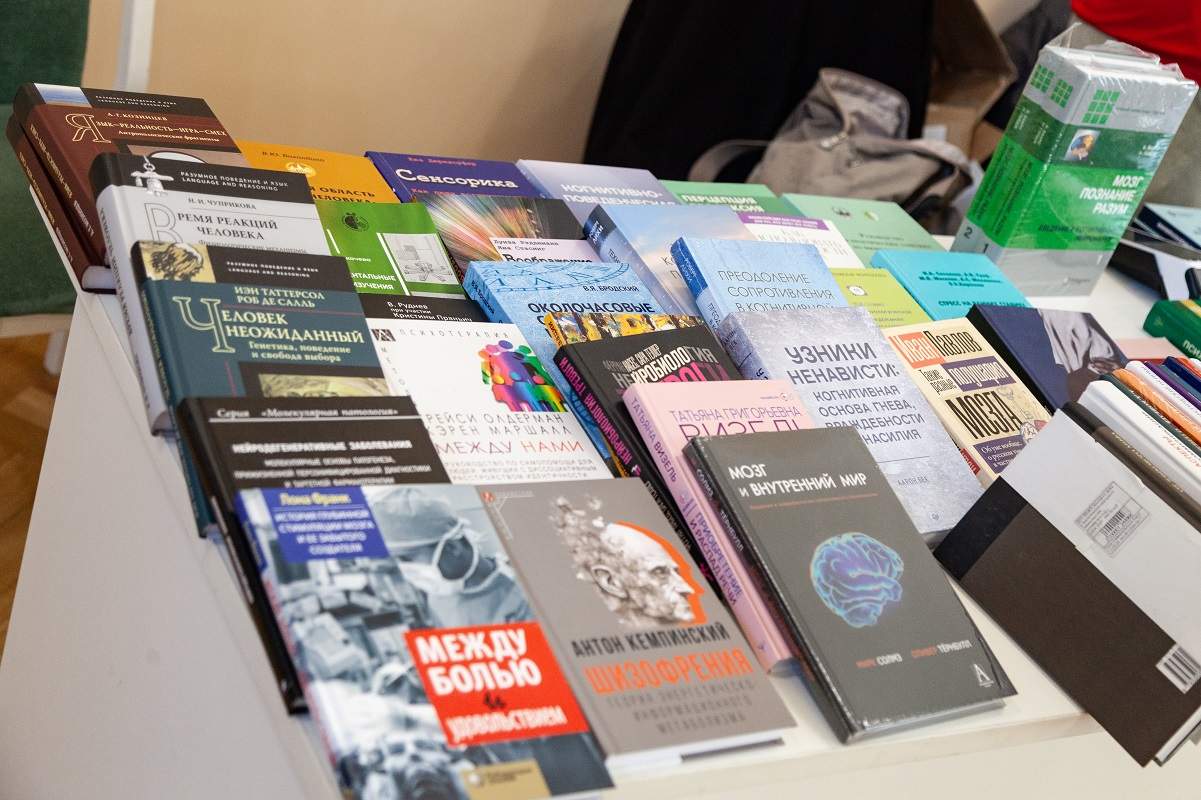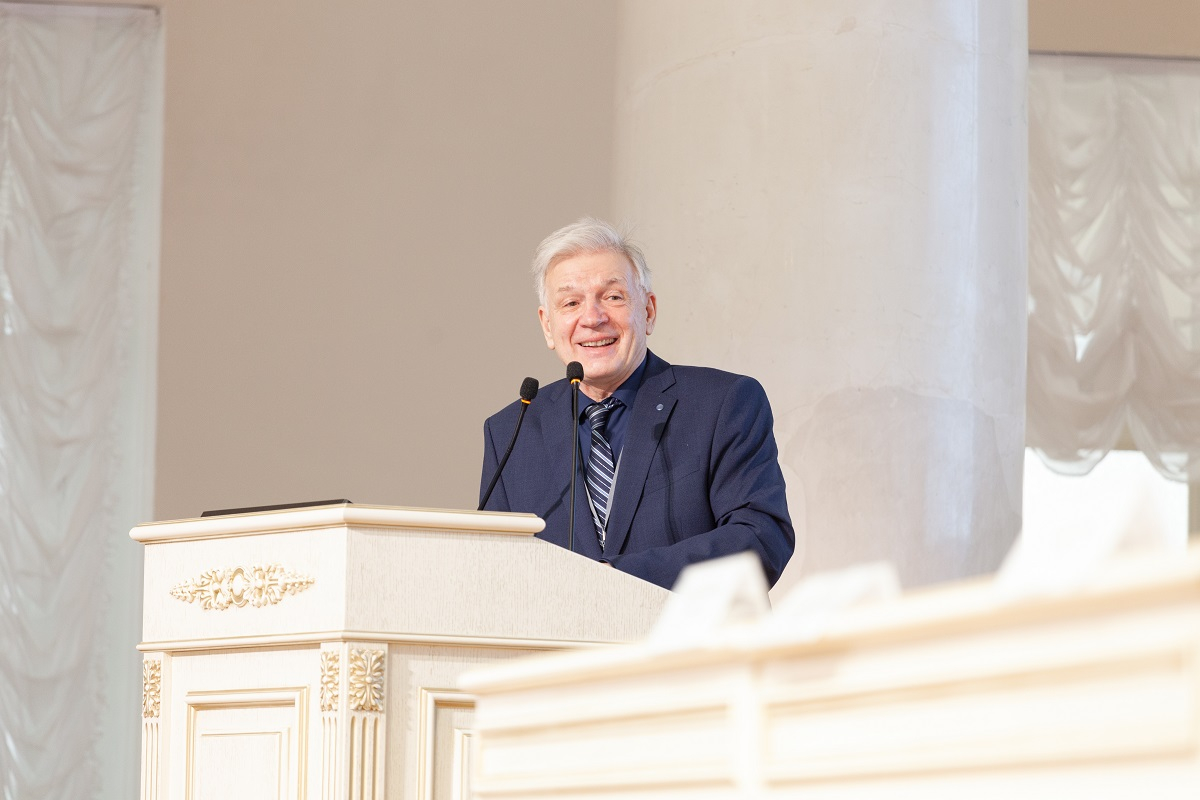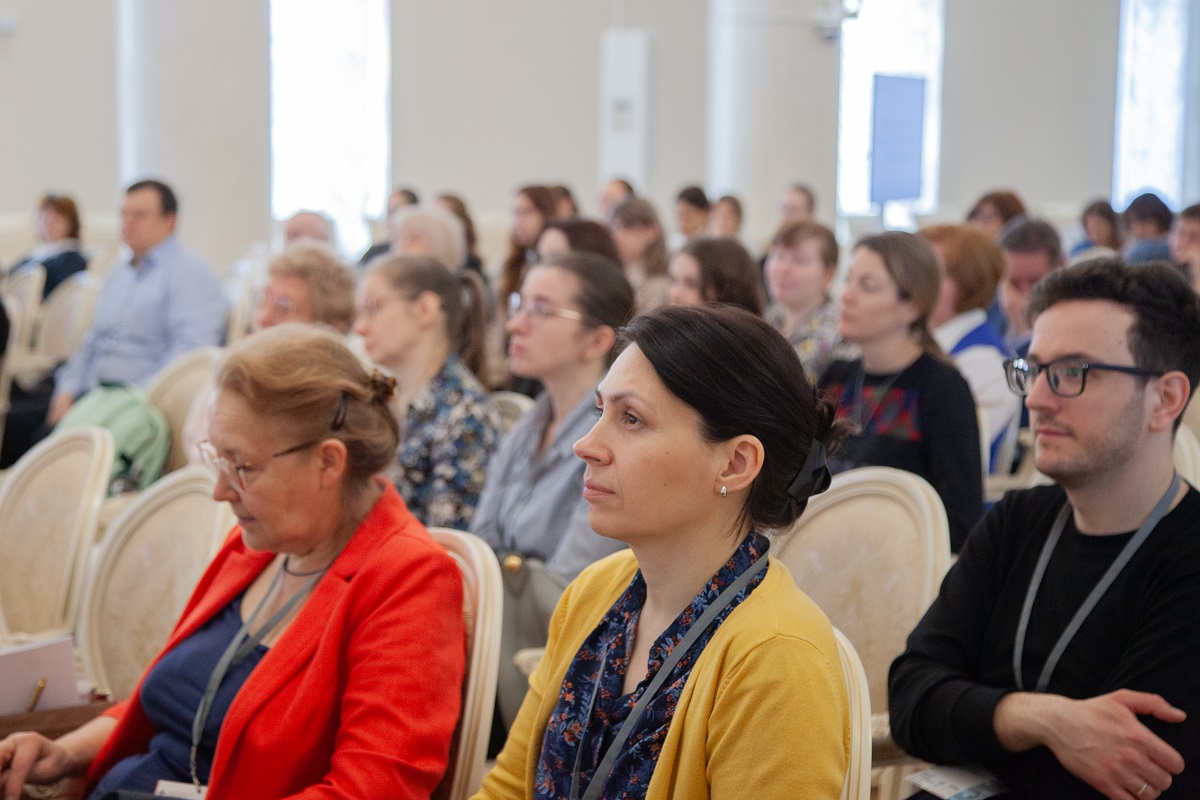Tatiana Chernigovskaya: ‘We have entered a new phase in science development’
The All-Russian scientific conference ‘The imperative of Academician Alexei Ukhtomsky — the brain and its self-knowledge’ has gathered scholars from both Russia and abroad. This event, co-organised by St Petersburg University and the Russian Academy of Sciences, was dedicated to the 150th birth anniversary of the prominent Russian physiologist, Academician Alexei Ukhtomsky.
The conference ‘The imperative of Academician Alexei Ukhtomsky — the brain and its self-knowledge’ focused on the current state of research in brain physiology and cognitive processes. The event participants discussed the mechanisms of cognition and complex forms of human behaviour; the evolutionary aspects of biological and social determinants of consciousness and thinking; the specifics of the processes of perception and consciousness; some aspects of intelligence formation; and the role of language as a means of cognition and communication.
Alexei Ukhtomsky, one of the founders of the physiological school at Leningrad University, is the author of the concept of dominance as a universal mechanism of the organisation of purposeful human behaviour and cognitive activity (The dominant as operating principle of nerve centres, 1923). His works had significant scientific and practical implications for medicine, psychology, and pedagogy.
The conference was attended by over 200 experts from various regions of the Russian Federation, including: St Petersburg; Moscow; Nizhny Novgorod; Kazan; Saratov; Samara; Astrakhan; Yaroslavl; Kaliningrad; Sirius (Sochi); Kurgan; Izhevsk; and Khanty-Mansiysk; as well as from Azerbaijan (Baku) and the Kyrgyz Republic (Bishkek). Plenary session reports were presented by Members of the Russian Academy of Sciences, Konstantin Anokhin and Pavel Balaban, and Members of the Russian Academy of Education, Aleksandr Asmolov and Tatiana Chernigovskaya.
According to Professor Alexander Markov, Head of the Department of General Physiology at St Petersburg University, Chairman of the St Petersburg Branch of the Russian Pavlov Physiological Society, and Head of the Laboratory of Interoception at the Pavlov Institute of Physiology of the Russian Academy of Sciences, the theme of the conference ‘The imperative of Academician Alexei Ukhtomsky — the brain and its self-knowledge’ underscores the significance of St Petersburg University in the study of brain functions and cognitive processes, continuing the traditions established by Academician Alexei Ukhtomsky.
‘The Department of Physiology at St Petersburg University served as Alexei Ukhtomsky’s academic home for four decades. After graduating from the Theological Academy, he decided to enter the University because he wanted to become a physiologist. However, due to the laws at the time, graduates of theological academies and seminaries were not permitted to enrol in natural sciences departments at universities. Consequently, in 1899, Alexei Ukhtomsky became a student auditor in the Faculty of Oriental Studies at St Petersburg Imperial University. The following year, he successfully transferred to the Faculty of Physics and Mathematics, which included the Department of Physiology,’ reminded Alexander Markov.
During World War II, Alexei Ukhtomsky stayed in Leningrad, where he conducted research on traumatic shock in the context of wartime conditions. Alexei Ukhtomsky’s last paper was ‘The system of reflexes in the ascending tracts’. Alas, the researcher was not able to present it himself. On 31 August 1942, the outstanding Russian physiologist Alexei Ukhtomsky passed away in the besieged city.
According to Professor Tatiana Chernigovskaya, Director of the Institute for Cognitive Studies at St Petersburg University and Member of the Russian Academy of Education, the conference dedicated to the 150th birth anniversary of Alexei Ukhtomsky is highly relevant today due to the rapid development of neurobiology and neurophysiology.
In her plenary report, titled ‘Human nature is makeable: evolutionary neuroanthropology of Alexei Ukhtomsky’, Professor Tatiana Chernigovskaya emphasised that achieving a comprehensive understanding of the operating principles of the brain and its self-knowledge remains one of the most significant challenges in modern science.
‘It is already evident, however, that we have entered a new phase in the development of science. More precisely, we are revisiting our long-forgotten past, when natural philosophy was regarded as "the mother" of all sciences. As scientists, we must clearly recognise the risks associated with such an approach,’ said Professor Tatiana Chernigovskaya, Director of the Institute for Cognitive Studies at St Petersburg University.
Professor Chernigovskaya underlined that science, as a collection of diverse fields of study — like ‘a basket filled with all sorts of parcel bags and boxes’, — has largely reached its limits in the 21st century. Today, it is time for a new form of interaction.
Today, we are witnessing an integration, a synthesis of the humanities and natural sciences. We need to harness all our intellectual capacities to benefit the world, not to harm it. And I can assure you that addressing the challenges faced by physiology, psychology, and other sciences demands immense intellectual effort. Furthermore, we need to solve these issues in a manner that will preserve the integrity of specific scientific fields.
Professor Tatiana Chernigovskaya, Director of the Institute for Cognitive Studies at St Petersburg University, Member of the Russian Academy of Education
The website of the M. Gorky Scientific Library at St Petersburg University hosts a virtual exhibition, titled ‘Alexei Ukhtomsky — outstanding physiologist, academician, author of the Concept of Dominance’, in honour of his 150th birth anniversary (1875-1942). The exhibition features pre-revolutionary and Soviet-era publications from the Library’s collection, including: Alexei Ukhtomsky’s collected works; ‘St Petersburg University — the first century of its activity. 1819-1919’ (1919); ‘On the dependence of motor cortex influences on collateral central influences’ (1911); ‘Parabiosis and dominance’ (1927); ‘Dominance’ (1966), and other significant works by Alexei Ukhtomsky.


